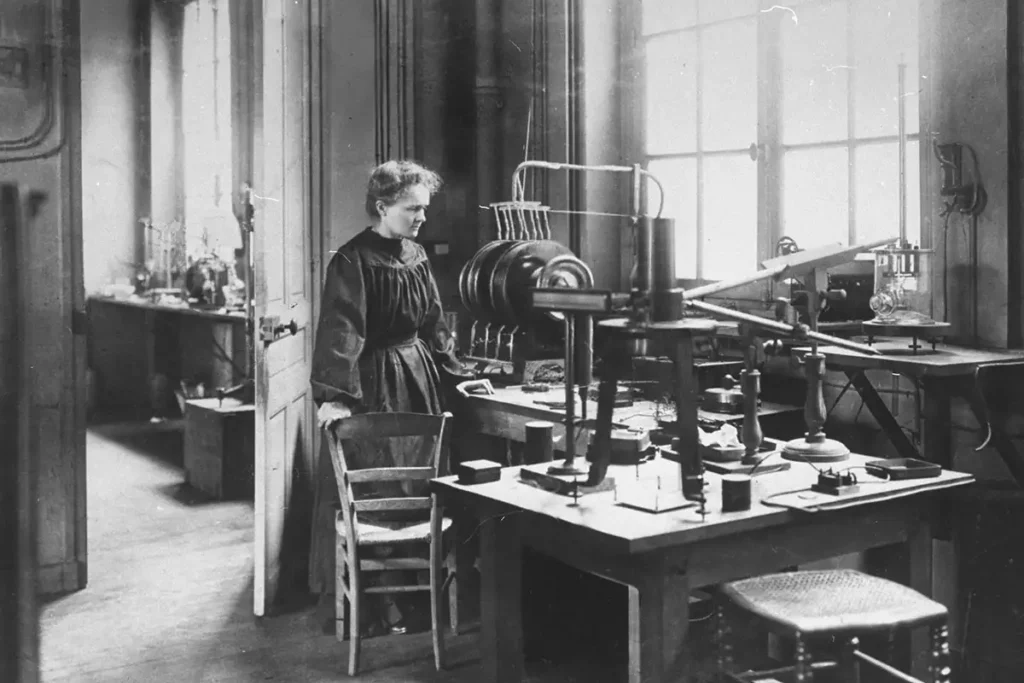On November 7th, 1867, the world welcomed the birth of Marie Curie in Warsaw, Poland. Marie Curie would go on to become one of the most renowned scientists, pioneering research in radioactivity and becoming the first woman to win a Nobel Prize. She would eventually be known as ‘The Mother of Modern Physics’.
The Early Years of Marie Curie
Born as Maria Skłodowska, Marie Curie faced numerous challenges in her pursuit of education due to gender-based limitations. Despite these obstacles, she went on to study physics and chemistry, later moving to France and marrying Pierre Curie.
Insights and Scientific Legacy
- Pioneering Scientific Contributions: Marie Curie’s groundbreaking work in radioactivity led to her discoveries of the elements polonium and radium, significantly advancing the field of nuclear physics.
- Nobel Prize Laureate: Curie was awarded two Nobel Prizes, one in Physics and the other in Chemistry, becoming the first person and the only woman to win Nobel Prizes in two different scientific fields.
- Impact on Science and Medicine: Her research laid the foundation for modern advancements in radiology and cancer treatment, shaping the future of medicine and scientific inquiry.

Educational Exploration for Curious Minds
- Scientific Trailblazers: Encourage learners to explore the life and work of Marie Curie and her significant contributions to science.
- Radioactivity and Its Applications: Delve into the understanding of radioactivity and its practical applications in various scientific and medical fields.
- Inspiring Women in Science: Discuss the significance of Marie Curie’s journey and her enduring legacy as an inspirational figure for women in STEM.
Conclusion
November 7th marks the birth anniversary of Marie Curie, a pioneer in scientific research, whose groundbreaking work in radioactivity and nuclear physics reshaped the scientific landscape. Her legacy as a pioneering scientist and her enduring impact on scientific discovery and medical advancements remain unparalleled.
References
- Quinn, S. (2011). Marie Curie: A Life. Oxford: Blackwell Publishing.
- Goldsmith, B. (2004). Obsessive Genius: The Inner World of Marie Curie. New York: W. W. Norton & Company.







What do you think?
Show comments / Leave a comment